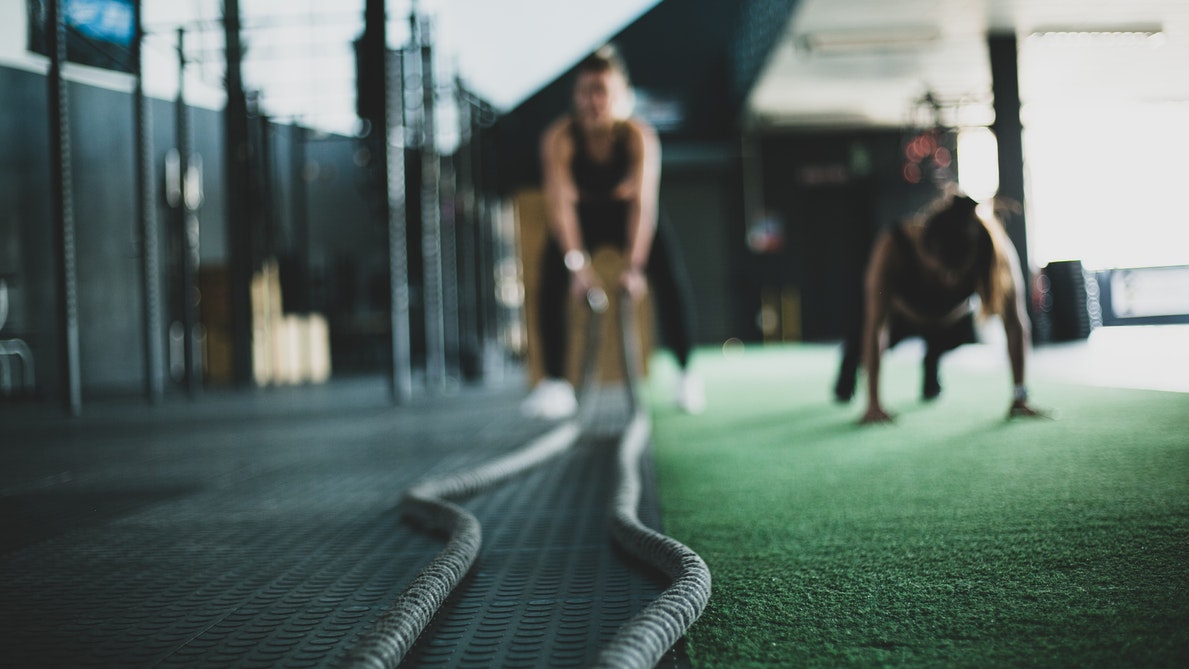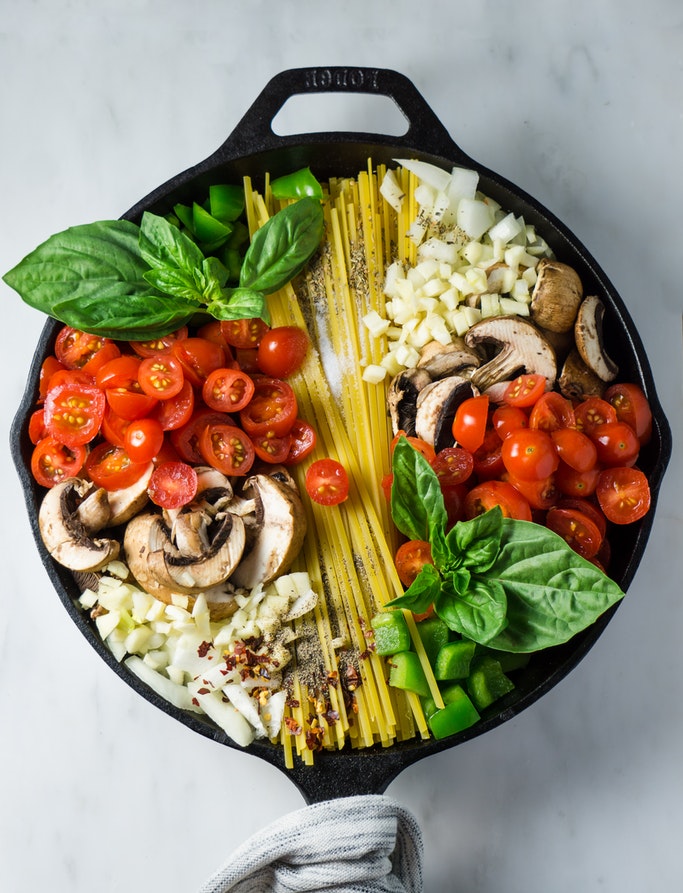Being sporty and not consuming animal proteins: it is obviously possible.
Whether amateur or professional, many athletes have banned meat and fish. Vegetarian or vegan, their diets did not prevent them from continuing to practice their sport, sometimes at very high intensity. As part of our report on sports nutrition, we met Benoît and Lara, two vegan athletes, to find out more about their habits and practices.
Benoît is a 29-year-old engineer. A Parisian for 4 years, he has also been a sports fan since a young age, a lover of electronic music, beers and evenings with friends. Disappointed with his first mark at the Paris Marathon in 2014, Benoît decided to change his eating habits by becoming vegan. A change in diet accompanied by a loss of 15kg and continued intense training allowed him to drop below the 3 hour mark two years later. Eclectic, he currently practices three sports: triathlon, swimming, cycling and running with 4 running training sessions per week, 1 to 2 swimming sessions and in summer up to three cycling sessions. A lot you might say, however, for this great sportsman it is part of his daily lifestyle as he registered for the IronMan in Vichy on August 25, 2019 (the Holy Grail of triathlon).
Lara is a young student who divides her time between a BTS in tourism, naturopathy studies and her part-time job at Biocoop. Many would be content with this already busy schedule, but Lara adds to it an intense and regular sporting activity and a strong presence on social networks. A sportswoman since she was very young (dancing and horse riding), Lara now practices fitness and bodybuilding 6 to 7 sessions per week. She is also a fan of windsurfing in the summer. Having become vegan a year and a half ago, her change in diet was initially motivated by joining the gym. The objective? To lose weight ! After starting an 80% plant-based diet, Lara continued her research and gradually eliminated foods of animal origin for reasons of ethics and consistency with her convictions, particularly environmental ones. Once the presentations have been made, we will now focus on their sporting practices.
How does this translate into practice?

Being sporty cannot be improvised. It requires a certain rigor whether it is on the plate or on a daily basis. Our two athletes have eating habits that allow them to accomplish all their goals.
Benoît starts the morning with 1 or 2 fruits and a soy milk porridge and pumpkin seeds. This constitutes a good protein base and a supply of vitamins and minerals.* The rest of the day is quite unpredictable due to work and outings but he always makes sure to eat a regular and balanced diet until bedtime.
Before sport: hydration with well mineralized water and good carbohydrate intake to have energy.
After sport: Benoît favors fruits which are a source of carbohydrates, vitamins and minerals. In terms of food supplements, he consumes vitamin B12 and vitamin D during the winter**. For Lara, protein intake is controlled throughout the day. She favors hemp powder which provides almost all the essential amino acids, as well as fiber and omega 3. She also consumes soy in all its forms and seitan for its significant contribution in protein, but also in Iron, Calcium, Magnesium and phosphorus. Lots of essential minerals for good performance, but don't forget to eat vegetables and legumes.
“A meal without vegetables is not a real meal in my eyes.”
During training: Amino acids to facilitate muscle recovery.
After sport: Lara generally prefers a real meal rather than a post-session snack.
(* note from Argalys: be careful, soy milk must be enriched with Calcium, otherwise there is a risk of lacking this ultra-important mineral) (**note from Argalys: for a vegan, B 12 is every day !)
Creating your own routine is never easy, especially when you're starting out. This requires investment and finding a good balance between pleasure and nutritional needs. Our two athletes are perfect examples of the compatibility between sport and active life.Advice for beginner athletes
 If some of you are still hesitant about getting started, here are some tips to help you take your first steps with confidence and serenity.
If some of you are still hesitant about getting started, here are some tips to help you take your first steps with confidence and serenity.
Benoît: “As for nutrition, it's like any athlete, knowing your needs and then adapting your diet. You should not start with knowledge about the poverty or richness of nutrients and foods but really know them well (nutritional value and bioavailability) to meet your needs. Then on a sporting level, we need to know the reasons that motivate us. Most of the time it is to lose weight and this is a big mistake because sport improves physical abilities and has little impact on weight. You really have to get into the mindset that you don't lose weight by doing sports but that you lose weight to do sports. »
Lara: “Following vegan and sporty people on social media is getting easier and easier and it’s great. You can get motivation and inspiration for training as well as cooking. I must admit that when starting out, the hardest thing is to understand that being vegan is another way of cooking, of putting together your dishes. It doesn't come naturally, hence the interest in looking at two or three recipes online until you get used to it. »
In bodybuilding or endurance, a 100% plant-based diet is entirely compatible with physical effort and has many advantages such as better knowledge of your body, better control of foods which are of better quality and less expensive.
“You just need to find out, the two are compatible, for the moment it has not been demonstrated that it improves performance or degrades it, however some, including myself, note an improvement in the ability to recover. »
“To take a look at Jon Venus’s Instagram profile! There are more and more athletes who are turning to this mode of consumption, and it is not without reason. »
The final word
 As you will have understood, sports nutrition requires some knowledge and good listening to your body. Long efforts, or the repetition of these efforts, considerably increase the requirements for energy and vitamins and minerals, while the protein requirements remain fairly stable, if the amino acid balance is correct. For vegan athletes, protein intake remains sufficient with a balanced diet, but it seems important to us to monitor iron and calcium intake as a priority. Often neglected, their deficiencies have a major impact on performance.
As you will have understood, sports nutrition requires some knowledge and good listening to your body. Long efforts, or the repetition of these efforts, considerably increase the requirements for energy and vitamins and minerals, while the protein requirements remain fairly stable, if the amino acid balance is correct. For vegan athletes, protein intake remains sufficient with a balanced diet, but it seems important to us to monitor iron and calcium intake as a priority. Often neglected, their deficiencies have a major impact on performance.
For calcium : It is relatively simple to manage (supplementation or calcium-rich water, etc.).
For iron: It is prudent to overconsume it and to have an annual blood test. In fact, non-heme iron (from plants) is very poorly assimilated by the body.
We strongly advise everyone to consult a nutritionist or dietitian to establish a program consistent with your food tastes and your performance goals. Don't let doubts arise and have the reflex to consult a professional to set up your nutritional program. You will be a winner.
If you would like to know more about Lara and Benoît, do not hesitate to follow them on social networks and discover their world!
To discover Lara on Instagram but also on YouTube. To discover Benoît on Instagram .
A big thank you to them for taking the time to answer our questions despite their very busy schedules!
In future articles, we will talk to you about the nutritional management necessary for long efforts as well as the relationship between protein and muscle mass. We hope you liked this article. To discover our products adapted to your consumption, go to our site !
 04 74 03 98 80
04 74 03 98 80









